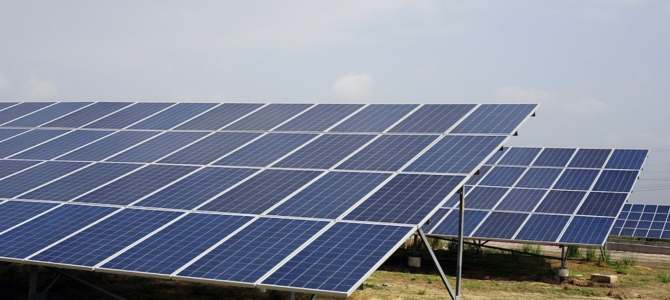If we expect to create a prosperous future fueled by low-cost, clean energy, it’s time to recalibrate the way we think about renewables. That requires us to move beyond the once cutting-edge view that solar power is a key ingredient in lowering greenhouse gas emissions.
Ironically, a frequent target of environmentalists, Duke Energy, is showing us that’s not the case. In fact, Duke documents show the negative impact of deploying solar power on the electric grid.
Reporting by North State Journal revealed Duke is asking North Carolina regulators to ease air quality emission limits for some of Duke’s combustion turbine facilities. The utility is trying to reduce air pollution it says is due to the increased penetration of solar power. North Carolina ranks second in the nation, behind only California, in the amount of installed solar plants.
Duke’s problem shows what happens when basic science collides with operational reality. Solar energy is intermittent. Until a reasonable storage technology is available, natural gas plants must operate when solar is brought on and off the grid. Put simply, the gas plant is generating power when the sun isn’t shining. Duke’s applications reportedly show that, due to the see-saw effect of deploying solar, emissions of the pollutant nitrogen oxide have increased, even though the level is lower than emissions from purely coal-based energy.
North State Journal also reported on Duke’s concerns about the potential reversal of reductions in another pollutant, carbon dioxide, if North Carolina continues to impose its renewables mandate on utilities. Such a reversal is possible if regulations force Duke to reduce nuclear plant output because it must accept solar electricity instead. It turns out that when zero-emission nuclear plants are dialed back to make room for solar, greenhouse gas-emitting plants must be employed to give nuclear plants time to ramp back up when the sun goes down. That’s not exactly the results environmentalists were expecting from the push to adopt solar power.
In the science field, we adjust our views and practices as new evidence and data come to light. That’s where we find ourselves today. Duke’s real-world experience is pointing us to simple but effective steps to ensure we’re producing affordable, low greenhouse gas-emitting electricity.
First, let’s allow the use of natural gas on its own in certain circumstances, instead of requiring solar output to dictate natural gas combustion. This would require legislative action to change North Carolina’s renewable energy policy. Right now, utilities that operate in North Carolina are required to purchase solar power at all times.
Next, let’s embrace clean nuclear energy now and in the future. North Carolina’s Duke Energy operates six nuclear plants, a small portion of a considerable fleet that has served the nation well. They have years of useful life remaining, but ensuring their long-term future requires a lengthy relicensing process by the Nuclear Regulatory Commission.
We must incentivize utilities to relicense their plants rather than retire them. Publicly owned, regulated utilities typically don’t receive a rate of return on assets that have fully depreciated. This is not to say utilities are retiring coal and nuclear plants after paying off mortgages simply because the plants no longer earn a return. Still, the lack of additional incentive is a reality.
Relicensing would also protect customers’ wallets. A recent study from the Institute for Energy Research revealed that the cost of power produced by an old nuclear plant is more than 30 percent cheaper than new natural gas, the next cheapest option.
If we allow nuclear plants to be retired under current economics, some combination of natural gas combustion turbines and renewable sources such as solar or wind will replace them. This means a zero greenhouse gas-emitting source that doesn’t spew nitrogen oxides or other pollutants will be replaced with a source that does, and at a higher cost as well.
More greenhouse gas emissions and higher electric bills — that’s not what anybody wants. It’s time for North Carolina to learn from Duke’s experience, alter its course, and lead the nation into this new era of energy production and implementation.
These comments are the opinion of the author and do not necessarily express the position of the John Locke Foundation.









